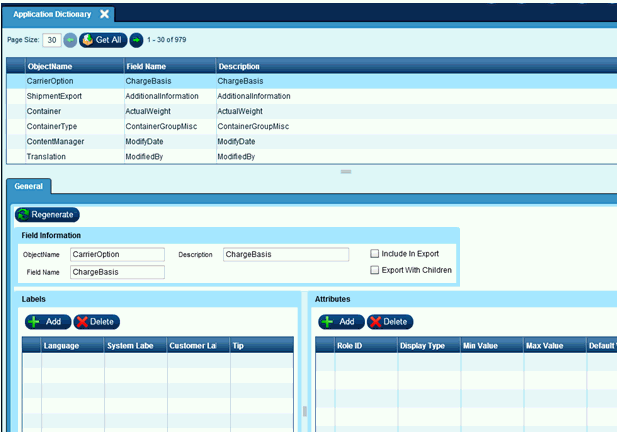

The Application Dictionary file is used to specify field names, data length and access requirements based on assigned User Roles.

Object Name:
This field is the parent construct of the associated data element. This may be a table, field, or function. This Object Name must not be changed.
Field Name:
This field may be a table, field, button, or function that is called out in code for Epicor Manifest. Field names must not be changed.
Description:
This editable field is used to define a general description for each field used within Epicor Manifest.
Language:
This field is used to define the ISO standard code to identify the language of the specified field labels in Epicor Manifest.
System Label:
This field is used to define the default label for the field within Epicor Manifest. This is a Required field.
Customer Label:
This optional field is used to define the optional/implementation specific label. This is often used to synchronize naming conventions.
Tip - This field is used to define an optional tool tip display when mousing over the selected field.
Role ID:
This field is used to dictate the security level for the field in Epicor Manifest.
Display Type:
|
Display Type |
Description |
| Enabled | Viewable and Editable |
| Hidden | Not Viewable |
| Visible | Viewable and Not Editable |
Min Value:
This field is used to define the minimum value that must be entered in the selected field.
Max Value:
This field is used to define the maximum value that must be entered in the selected field.
Default Value:
This field is used to define the value that will automatically load in the field when creating a new record.
Grid:
This flag is used to define if the selected field will be displayed in the grid view as well as the form view.
Required:
This flag is used to define if the selected field is a required field when creating a new or editing an existing record.